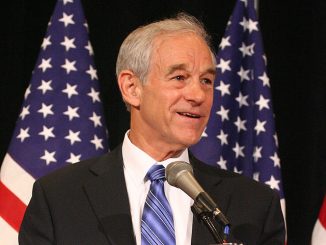St. Louis Federeal Reserve President James Bullard reaffirmed his commitment to the current policy stance. From his press release:
“Labor market conditions have improved since last summer, suggesting the Committee could slow the pace of purchases, but surprisingly low inflation readings may mean the Committee can maintain its aggressive program over a longer time frame,” Bullard concluded.
This is not surprising. Bullard has long been more focused on the implications of inflation for policy, believing that employment is largely out of the Fed’s hands at this point. More from Reuters:
“What’s not encouraging in this picture is that it’s (inflation) just going down and so far it hasn’t moved back at all. So I would have expected our very aggressive purchase program to turn that process, inflation expectations would go up and actual inflation would follow behind, which is what happened in the QE2 period,” said St. Louis Fed President James Bullard.
I think that Bullard is something of an outlier at this point. Ongoing declines in inflation would eventually cause his worries to spread further through the Fed, and could very well delay any effort to cut back on asset purchases. That, however, is not the baseline case. As a general rule, policymakers are more focused on the path of unemployment, which leads them to expect tapering to begin as early as in a few months. See Robin Harding here.
On the subject of tapering, Jon Hilsenrath had this to say over the weekend:
The hangup for Fed officials is the word “tapering” suggests a slow, steady and predictable reduction from the current level of $85 billion a month at a succession of Fed meetings, say to $65 billion per month, then to $45 billion and so on. And that’s not necessarily what Fed officials envision.
Because Fed officials are uncertain about the economic outlook and the pros and cons of their own program, they might reduce their bond purchases once and then do nothing for a while. Or they might cut their bond buying once and then later increase it if the economy falters. Or they might indeed reduce their purchases in a series of steps if warranted by economic developments — but they don’t want the markets to think that’s a set plan. It is, as Fed officials like to say, “data dependent.”
Which is interesting given that Bullard had this to say regarding inflation and policy:
“Maybe this is noise in the data, maybe this will turn around, but I’d like to see some reassurance that this is going to turn around before we start to taper our asset purchase program,” he said.
If the Fed wants us to stop using the word “taper,” they will need to take the lead. Or is Bullard just being honest – any reasonable forecast matched against their past behavior suggests the Fed tapers. On financial stability, Bullard adds this:
He noted that the Fed remains vigilant about the potential for financial market excess in the U.S. “An important concern for the FOMC is that low interest rates can be associated with excessive risk-taking in financial markets,” Bullard said. “So far, it appears that this type of activity has been limited since the end of the recession in 2009.” While the Dodd-Frank Act is meant to help contain some dimensions of this activity, “Still, this issue bears careful watching: Both the 1990s and the 2000s were characterized by very large asset bubbles,” he added.
The Fed is keeping an eye out for bubbles, but the bulk of policymakers aren’t finding them. Consequently, the issue of financial stability is not a primary driver of policy. At best it is a distant third, far behind unemployment first and inflation second.
Bottom Line: Bullard remains focused on inflation. If his colleagues were to join him, they would stop pointing us toward cutting asset purchases in the next few months. As a general rule, however, for now low inflation is seen as an aberration, not the forecast.
- Bulenox: Get 45% to 91% OFF ... Use Discount Code: UNO
- Risk Our Money Not Yours | Get 50% to 90% OFF ... Use Discount Code: MMBVBKSM
Disclaimer: This page contains affiliate links. If you choose to make a purchase after clicking a link, we may receive a commission at no additional cost to you. Thank you for your support!




Leave a Reply